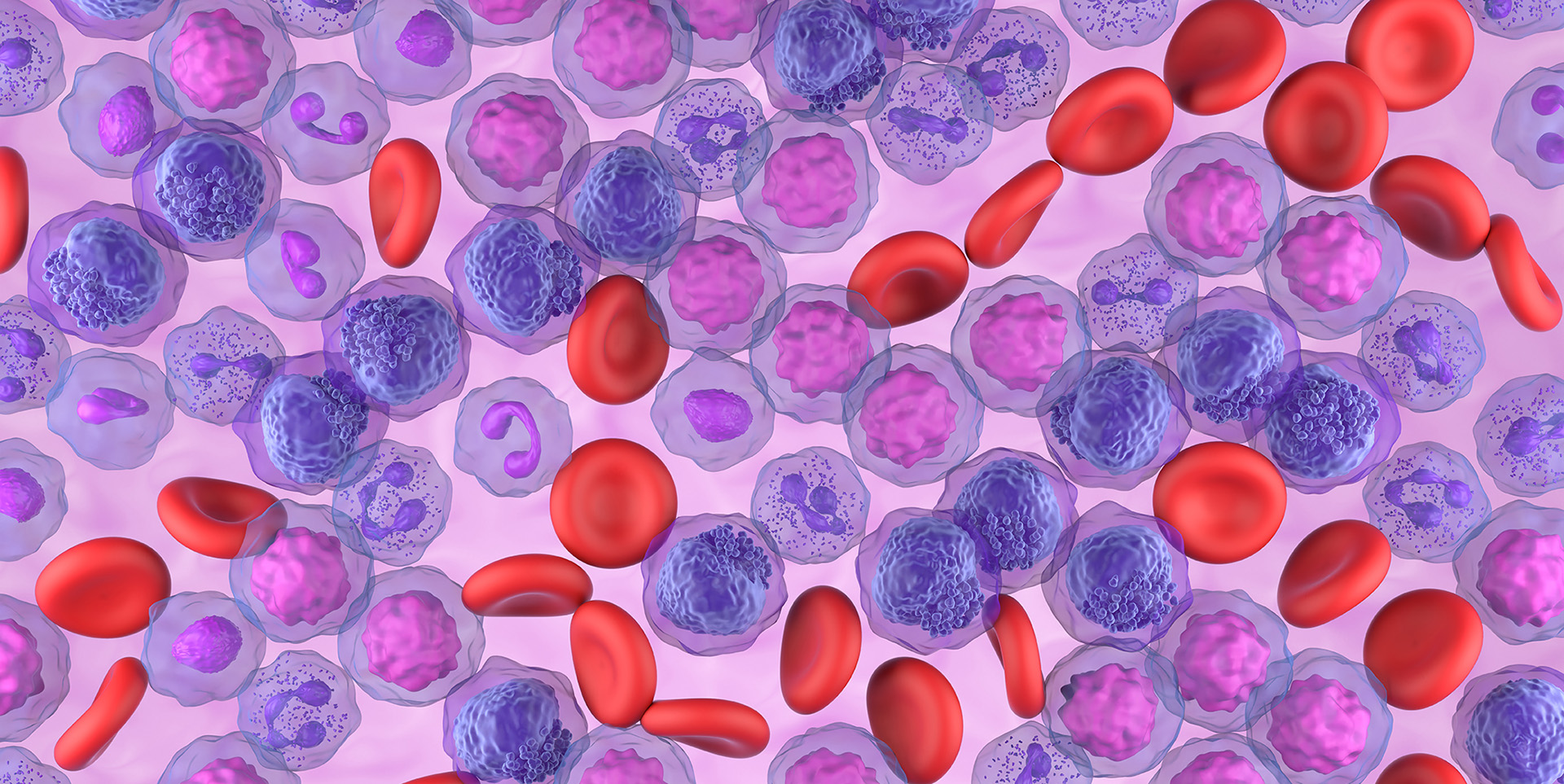
Lin Lab
Programmed cell death (PCD) pathways, such as apoptosis, necroptosis and ferroptosis, play a critical role in organism development, tissue homeostasis and malignancy pathogenesis. Evasion of PCD is essential to sustain tumor growth and contributes to tumor resistance against therapies. Acute myeloid leukemia (AML) is a heterogeneous hematologic malignancy with unmet clinical needs. Therapies directly stimulating apoptosis have shown clinical promise in treating some subsets of patients with AML. However, resistance to such therapies is commonly observed in patients. Our research goals are thus to expand the knowledge domain of PCD and leverage it in treating AML and other hematological malignancies.
Identifying the novel genetic and chemical regulators of programmed cell death (PCD)
We are applying functional genomics approaches to identify the novel regulators of PCD for tackling cancer.
As elucidating PCD operation can advance anti-cancer strategies, one focus of our research will be the identification and in-depth mechanistic investigation of genes essential for restraining PCD activation in AML cells. We have applied parallel CRISPR screens to systematically uncover novel genetic regulators of PCD. While apoptosis has long been exploited as a defense mechanism against cancer, we will also focus on other PCD modes, such as necroptosis and ferroptosis, which have emerged as promising avenues to eliminate cancers resistant to apoptosis. A similar screen platform will be utilized to elucidate the cell death mechanisms of cytotoxic small molecule compounds with anti-leukemia potential, and to identify novel chemical inducers of PCD. Our research will improve our understanding of PCD regulation and provide guidance for designing more efficacious therapy combinations against difficult-to-treat cancers. Notably, our discovery efforts have revealed MARCH5, an ubiquitin E3 ligase localized on mitochondria, as an important apoptosis regulator and a promising therapeutic target for AML. We have shown that MARCH5 is required for maintaining the activity of MCL1, an important apoptosis defender in AML and many other cancers. Depletion of MARCH5 not only triggers AML cell death but also enhances the efficacy of other apoptosis-directed therapies. Our ongoing work will elucidate the mechanism of MARCH5 in regulating AML apoptosis and delineate the molecular machinery of MARCH5, which will offer opportunities for developing MARCH5-targeted therapies as an AML treatment.
Investigating the vulnerabilities of acute leukemia driven by onco-fusion proteins
We are utilizing integrated methods to dissect survival programs essential for acute leukemia driven by onco-fusion proteins.
Acute leukemia driven by an onco-fusion protein commonly develops a dependency on selective survival programs to cope with oncogenic stresses and sustain tumor growth. For instance, leukemia cells harboring MLL-fusion proteins depend on BCL2 to evade apoptosis, and those with AML1-ETO rely on MPL-BCLXL pathway to survive. The CBFA2T3-GLIS2 (CG) fusion protein drives a subset of pediatric AML that is highly refractory to current standard therapies and has an extremely poor outcome. Integrating multiple approaches, such as functional genomic screens, CRISPR-competent patient-derived xenografts (PDXs), and leukemogenesis modeling with health human CD34+ hematopoietic stem cells, we will work on dissecting the survival pathways underlying CG-driven AML.
We will evaluate the translational potential of candidate targets in preclinical studies using PDX models and immunodeficient mice. We will also investigate the functional impact of inhibiting those targets on human normal hematopoiesis. Our goal is to discover the effective and selective therapeutic opportunities against CG-driven AML.

Shan Lin, PhD
Dr. Shan Lin received his PhD in molecular and developmental biology at the University of Cincinnati, where he focused on using human hematopoietic stem and progenitor cells to model the pathogenesis of acute leukemia driven by fusion proteins and characterizing critical pathways contributing to leukemia development. During his postdoctoral training at the Dana-Farber Cancer Institute, he applied functional genomic approaches, including an in vivo CRISPR screen pipeline, to identify the novel targets of acute myeloid leukemia (AML), and to discover the synergistic targets that enhance the efficacy of apoptosis-stimulating agents against AML. He joined the Ben Towne Center for Childhood Cancer and Blood Disorders Research in 2023.
-

Liam Caven
Research Scientist III
Liam earned his Ph.D. in Molecular Biosciences from Washington State University and is presently investigating novel dependency genes in CBFA2T3-GLIS2 AML. Off the bench, Liam enjoys baking pies and cheesecakes, hiking through Olympic National Park with his family, and the relentless demands of his cat.
-

Tien Hoang
Research Technician II
Tien earned a B.S. in Cellular and Molecular Biology from Seattle University. She is excited to explore the interactions and role of MARCH5 as a possible therapeutic target. Outside of research, she enjoys hiking, tide pooling, and playing Ultimate Frisbee.
-

Huixin Wu
Postdoctoral Researcher
Huixin received her Ph.D. in the Department of Biology at the University of Alabama at Birmingham, where she focused on early-life breast cancer prevention using phytochemicals and probiotics. Currently, she is interested in identifying genetic and chemical regulators of programmed cell death to enhance anti-acute myeloid leukemia strategies. In her free time, she enjoys outdoor activities and spoiling her guinea pig and cat.
